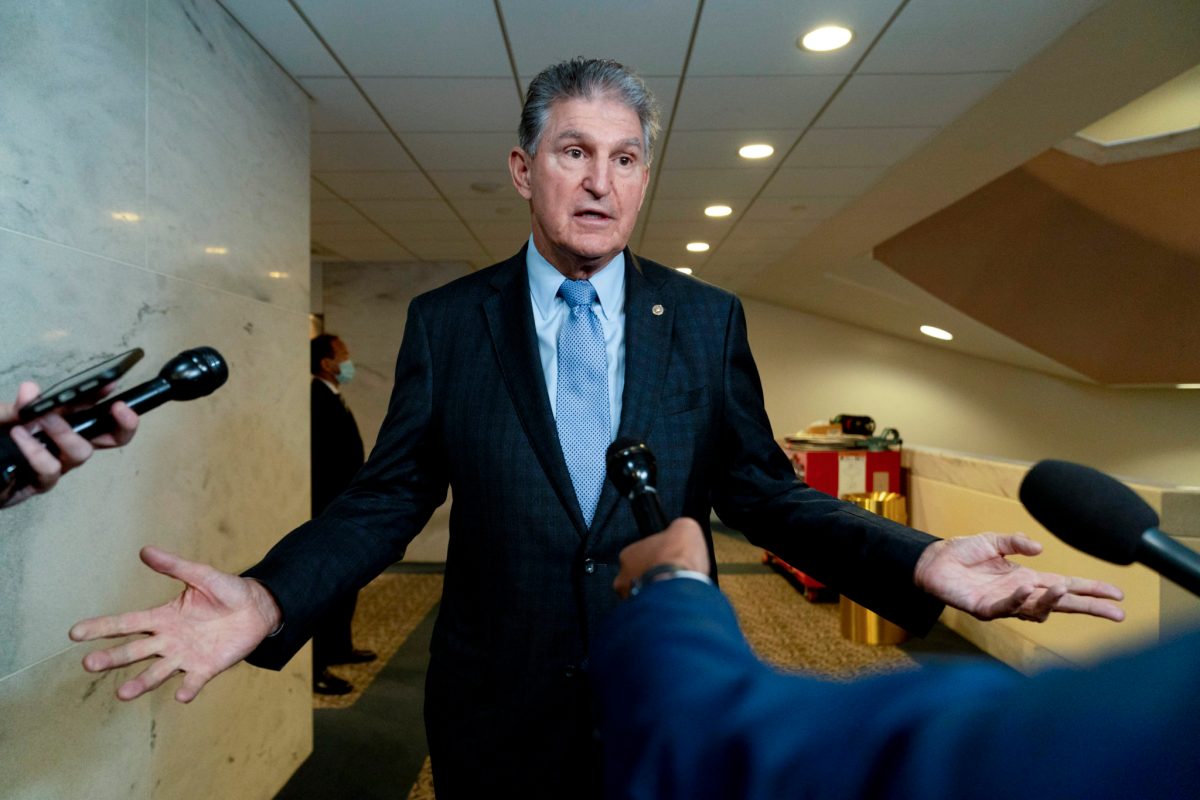Election Day in the Virginia governor’s race is on Tuesday, and the contest could not be closer. While Democrat Terry McAuliffe is still slightly favored to win and Democrats have banked more early votes, the polls have not been moving in their direction. Although it’s historically normal in Virginia for the governor’s race to tilt against the party that won the presidency, it’s a worrying place to be for a party that believed Virginia had turned blue for good. The race will almost certainly come to down to turnout—a battle for mobilization between somewhat dispirited Democrats and conspiracy-addled Republicans.
Two of the key themes of the election have been Republican Glenn Youngkin’s attempts to distance himself from Trump while holding on to Trump’s base, and national Democrats’ relentless efforts to remind Virginians that a vote for Youngkin is a vote for Trumpism and Trump policies. Virginia’s increasingly educated and suburban electorate is allergic to Trump, but the national headlines haven’t been doing President Biden and the Democrats any favors.
McAuliffe’s October slide in the polls reflects Biden’s decline in popularity. The president’s approval ratings have sunk to near-Trumpian lows, and Democrats down the ballot are getting caught in the undertow. It’s not hard to see why: Biden’s decline began with the less than stellar execution of the Afghanistan withdrawal—and the media’s overreaction to it.
But the biggest contributor has been malaise and discontent from the long, drawn-out battle over passing the president’s physical and social infrastructure bills. Biden was riding high during the early days of his presidency when spending bills, tax credits, and executive actions were passing regularly in keeping with the public’s priorities. Democrats nationally have suffered as talks have dragged on over passing policies that remain extremely popular and that Biden won the presidency on.
Voters dislike weakness and inaction; they’re willing to give a lot of leeway to leaders who fail sometimes, but who do so confidently and aggressively. This is somewhat frustrating to liberals who prefer calm, deliberative, compromise-oriented leaders, and to progressives who like to see voters reward good behavior and good policies. The inclination to reward boldness and action partly explains why the public tolerated the aggressively stumbling incompetence of George W. Bush and Donald Trump for so long. (It also reinforces sexism and misogyny in the American political system, but that topic deserves its own column.)
Simply put, Democrats need to regain their footing and momentum—and restore the public’s confidence and flagging progressive enthusiasm. As Anne Kim wrote in the Washington Monthly last week, a big infrastructure passage would have been a godsend for McAuliffe’s chances in Virginia.
Over the longer term, though, just passing any old watered-down bill won’t do the trick. As David Dayen wrote in The New York Times, a scrimping and means-tested social infrastructure bill that delivers few tangible benefits, forces people to jump through hoops, and pits the middle class against the poor would be almost worse than no bill at all. It’s far better to do fewer things well, with universal benefits and bold implementation, than to do more things halfheartedly and stingily. Republicans, after all, will not hesitate to pounce on donut holes, oversights, or iniquities in any Rube Goldberg means test contraptions. Needless to say, they will certainly not assist in patching any problems that arise.
The largest obstacles to the passage of a bold infrastructure package that could lift Democratic spirits and the public’s confidence are, of course, Senators Joe Manchin, a Democrat from West Virginia, and Kyrsten Sinema, a Democrat from Arizona, even though New Jersey Representative Josh Gottheimer’s centrist caucus in the house (the “Sabotage Squad,” as The Washington Post’s Greg Sargent calls them) deserves special mention here as well.
Senators Manchin and Sinema have their own, often inscrutable, political calculations for why they are endlessly watering down and delaying the infrastructure package. Some combination of misguided moral philosophy, narcissistic attention seeking, personal financial gain, and electoral incentives are likely driving their behavior.
But the course of the Virginia election should be enough to convince even them that Democrats need something big to run on for the special elections ahead and the looming 2022 midterms. Pushing against their left flank, or trying to hew to some warped and misconceived version of popularism, won’t save the party or its frontline members—not even in Virginia, much less in Montana or Arizona.
Democrats need to go big and bold. Otherwise, come next November, many of them will be going home.



